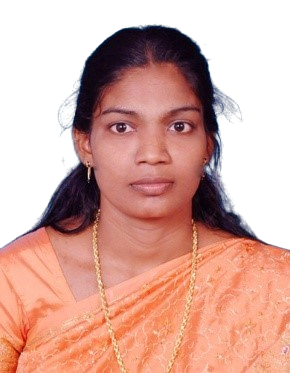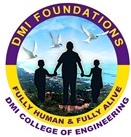The department of Electrical and Electronics Engineering was started in the year 2002 with a sanctioned strength of 60 and was later increased to a total of 120 in the year 2011. The department has fully fledged faculty members who are dedicated and well experienced in all fields of specialization. The department is fully equipped with the state-of-the-art laboratories.
Department Vision
To promote professionally competent Electrical Engineer with technical interpersonal skills and ethical values
Department Mission
- To impart quality technical education with high proficiency and provide a platform to apply the acquired knowledge.
- To impart the practice of continual erudition, evaluation and improvement of the self in technical and interpersonal skills.
- To nurture the talent and to facilitate the students with all round expertise and strong ethical values to make a positive difference the society through education.
PEO1: Core Competency with Employability Skills:
To generate graduates with strong fundamentals and broad knowledge in electrical science to design, analyze and synthesis information for various source and think differently to provide solutions to their discipline
PEO2: Promote Higher Education and R & D:
To produce engineers with innovative ideas to do effective research required to solve electrical engineering problems and to pursue higher studies
PEO3: Inculcating Entrepreneurial Skills:
To build entrepreneurs with necessary skills as employment generators to create innovative products and solutions for the real time problem.
PEO4: Ethical Values
To create high standards of moral and ethical values among the graduates to transform them as responsible citizens of the nation.
PSO 1:
Use logical and technical skills to model, simulate and analyze electrical components and systems.
PSO 2:
Integrate the knowledge of fundamental electronics, power electronics and embedded systems for the controllability, reliability and sustainability of electrical systems.
PSO 3:
Contribute for the development of smart power grid and integrating green energy on it to meet the increasing demand of the society.
| PO’S | Program Outcomes |
|---|---|
| PO a | Engineering Knowledge: Apply the knowledge of mathematics, science, engineering fundamentals, and an engineering specialization to the solution of complex engineering problems. |
| PO b | Problem Analysis: Identify, formulate, review research literature, and analyze complex engineering problems reaching substantiated conclusions using first principles of mathematics, natural sciences, and engineering sciences. |
| PO c | Design/Development of Solutions: Design solutions for complex engineering problems and design system components or processes that meet the specified needs with appropriate consideration for the public health and safety, and the cultural, societal, and environmental considerations. |
| PO d | Conduct Investigations of Complex Problems: Use research-based knowledge and research methods including design of experiments, analysis and interpretation of data, and synthesis of the information to provide valid conclusions |
| PO e | Modern Tool Usage: Create, select, and apply appropriate techniques, resources, and modern engineering and IT tools including prediction and modeling to complex engineering activities with an understanding of the limitations. |
| PO f | Engineer and Society: Apply reasoning informed by the contextual knowledge to assess societal, health, safety, legal and cultural issues and the consequent responsibilities relevant to the professional engineering practice. |
| PO g | Environment and Sustainability: Understand the impact of the professional engineering solutions in societal and environmental contexts, and demonstrate the knowledge of, and need for sustainable development. |
| PO h | Ethics: Apply ethical principles and commit to professional ethics and responsibilities and norms of the engineering practice. |
| PO i | Individual and Team Work: Function effectively as an individual, and as a member or leader in diverse teams, and in multidisciplinary settings. |
| PO j | Communication: Communicate effectively on complex engineering activities with the engineering community and with society at large, such as, being able to comprehend and write effective reports and design documentation, make effective presentations, and give and receive clear instructions. |
| PO k | Project Management and Finance: Demonstrate knowledge and understanding of the engineering and management principles and apply these to one’s own work, as a member and leader in a team, to manage projects and in multidisciplinary environments. |
| PO l | Life-Long Learning: Recognize the need for, and have the preparation and ability to engage in independent and life-long learning in the broadest context of technological change. |

Dr. R. Senthil Rama
Associate Professor & Head
Department of Electrical and Electronics Engineering
DMI College of Engineering, Chennai, Tamil Nadu, India
Dr. R. Senthil Rama is an Associate Professor and Head of the Department of Electrical and Electronics Engineering at DMI College of Engineering, Chennai. She holds a B.E. in Electrical and Electronics Engineering from Anjalai Ammal Mahalingam Engineering College (Bharathidasan University, 2001) and an M.Tech in Power Electronics and Drives from SASTRA Deemed University (2004). She earned her Ph.D. in Electrical Engineering from Anna University, Chennai, in 2019.
With 21 years of teaching experience, Dr. Senthil Rama has authored two books and published two patents. She has also completed multiple certification courses through NITTR, NPTEL, and ATAL.
She is a recognized research supervisor at Anna University, Chennai. Her areas of interest include Power Electronics and Soft Computing Techniques, and she has published extensively in renowned international journals and national conferences.
Will be updated Soon…!
- AGIIT Chennai
- III year students of EEE went for an industrial visit to NCTPS Power Station, Chennai on 4.9.19.
- Students of II year and IV year EEE went to an Industrial visit to NORTH CHENNAI THERMAL POWER STATION (NCTPS) located in Ennore, Chennai on 03.09.2019.
- EEE department Final year and Second year students went for the Industrial visit to NEYVELI LIGNITE THERMAL POWER CORPORATION , Cuddalore on 9.9.19.There they visited various sections such as thermal unit, Fossil fuel, and other renewable power generation etc.
- Electrical Machines Laboratory
- Power System Simulation Laboratory
- Power Electronics And Drives Laboratory
- Engineering Practice Laboratory
- Microprocessors And Microcontrollers Laboratory
- Control System And Instrumentation Laboratory
- Linear Integrated Circuits Laboratory
- Electronics And Devices Laboratory
| S.No | Sub code | Sub name | Question Bank |
|---|---|---|---|
| 1 | EE3302 | DLC | Click Here |
| 2 | EE3301 | EMF | Click Here |
| 3 | EE3303 | EM-I | Click Here |
| 4 | EE3501 | PSA | Click Here |
| 5 | EE3591 | PE | Click Here |
| 6 | EE3006 | PQ | Click Here |
| 7 | EE3503 | CS | Click Here |
| 8 | EE3018 | EP | Click Here |
| 9 | EE3009 | SEM | Click Here |
| 10 | EE8701 | HVE | Click Here |
| 11 | EE8702 | PSOC | Click Here |
| 12 | EE8703 | RES | Click Here |
| 13 | GE8071 | DM | Click Here |
| 14 | OBT751 | AMI | Click Here |


